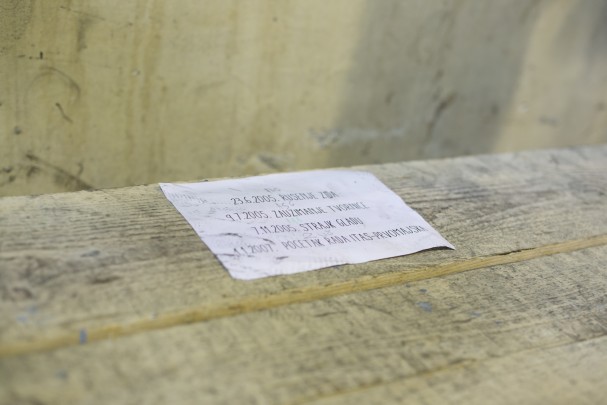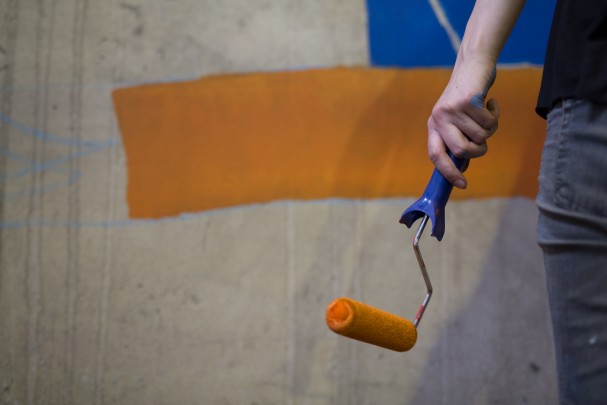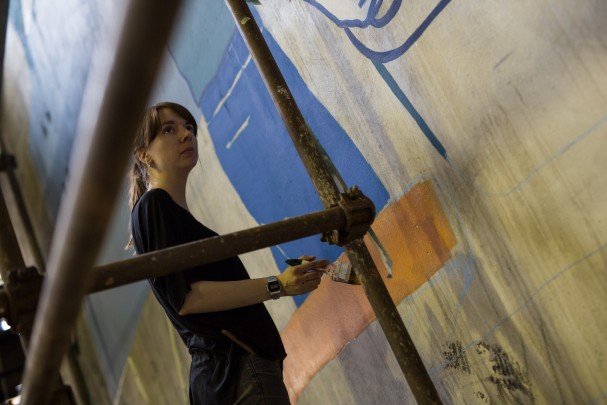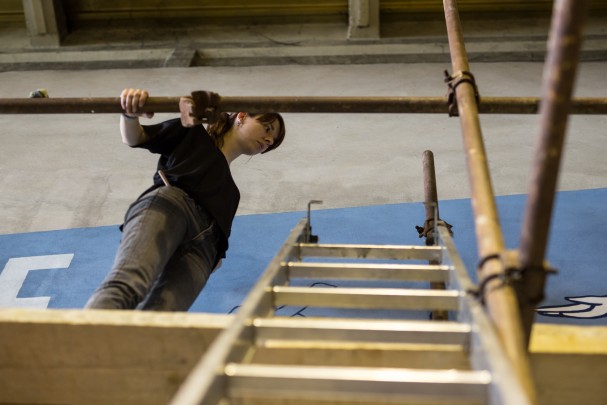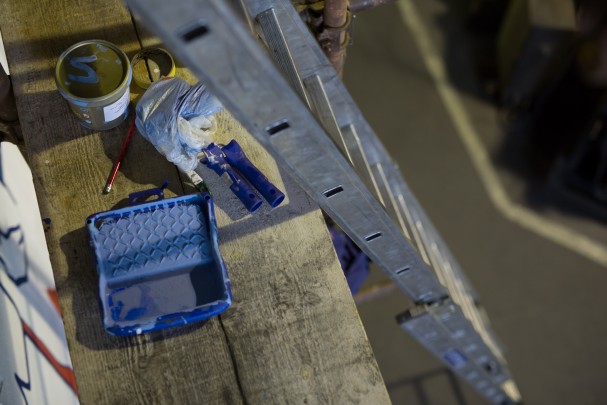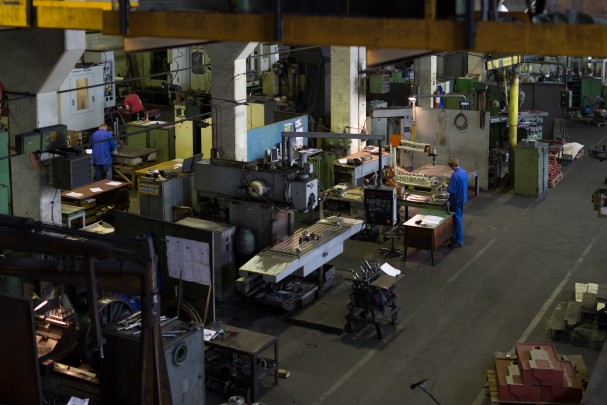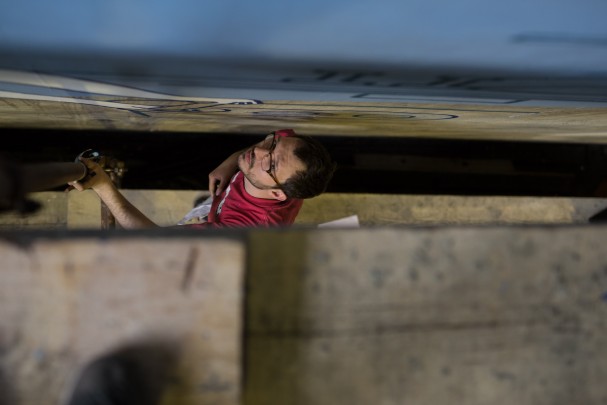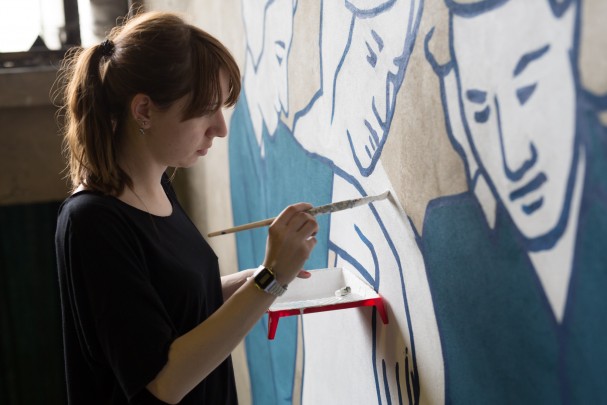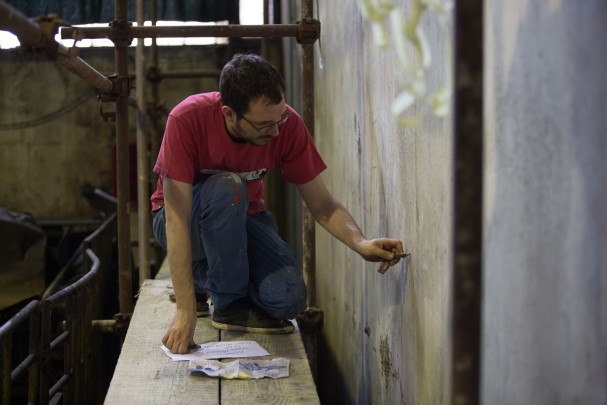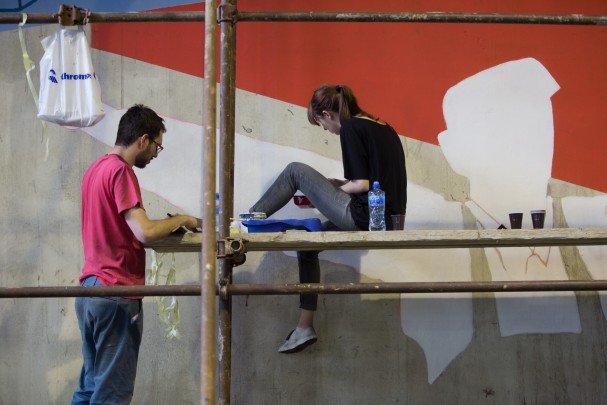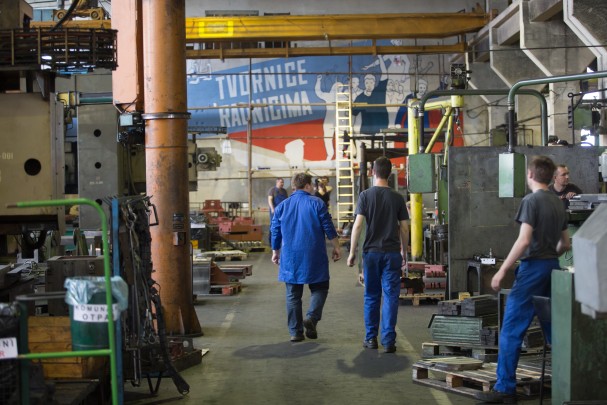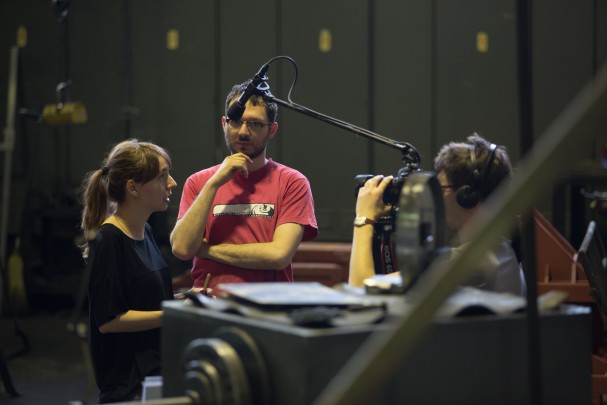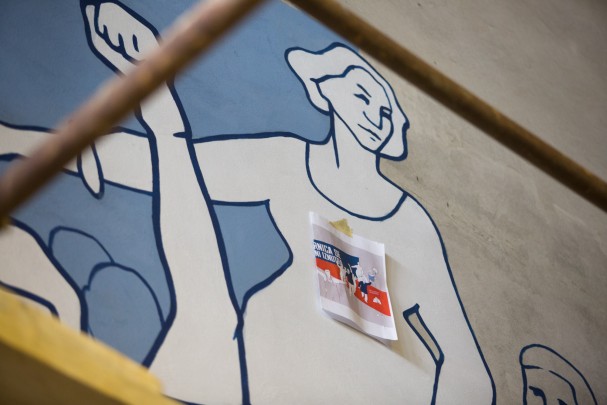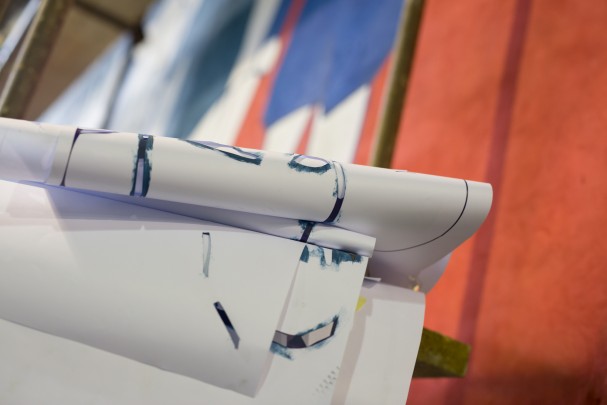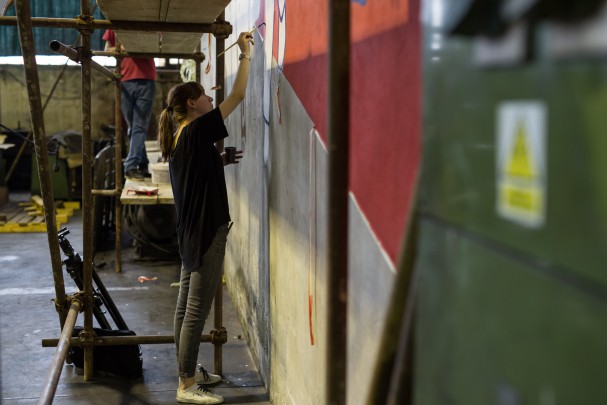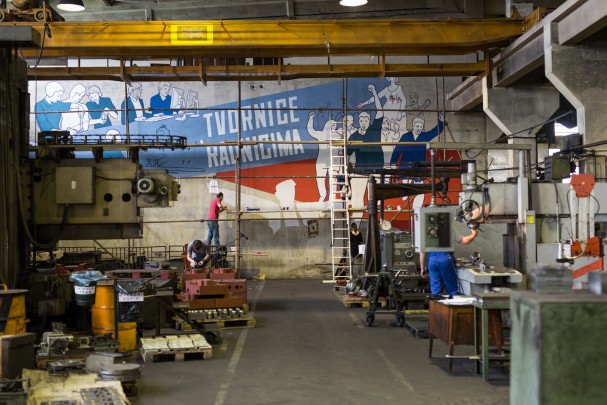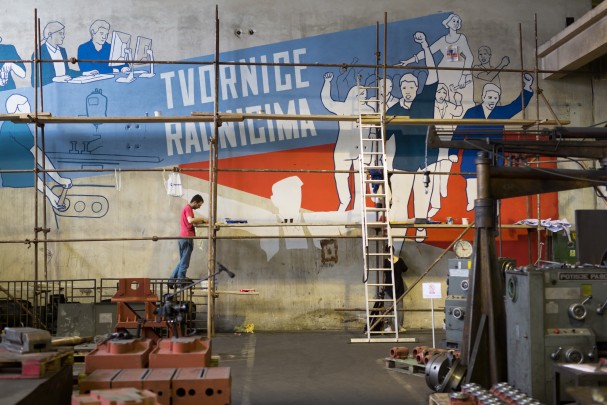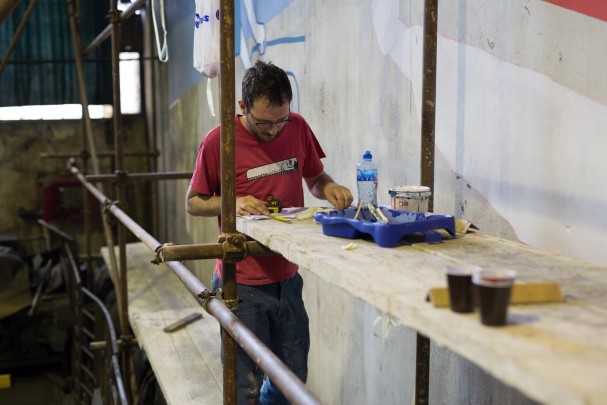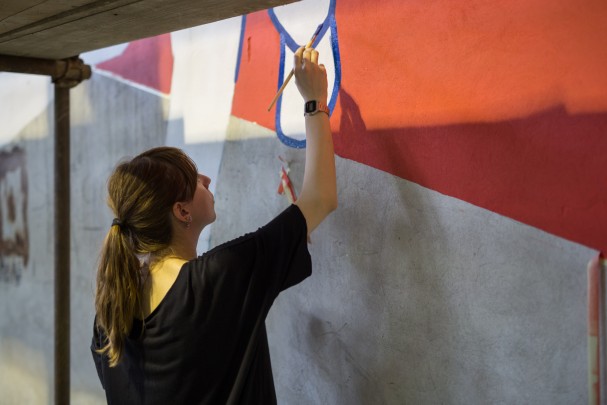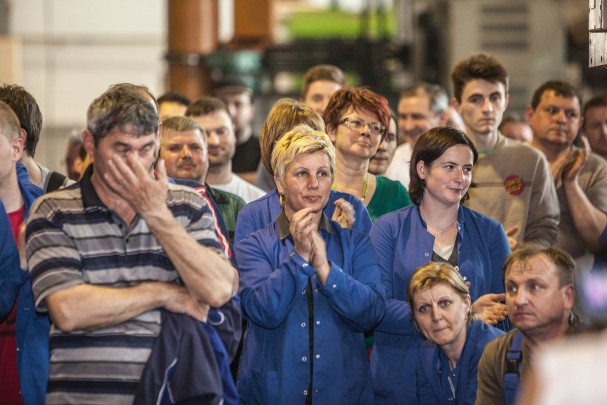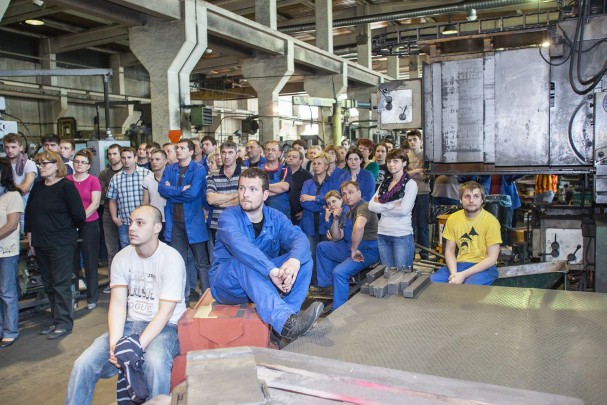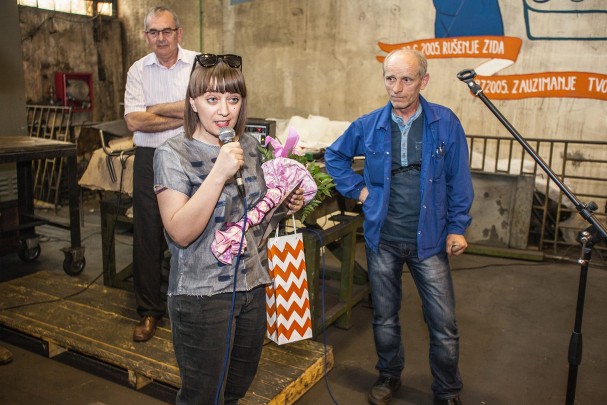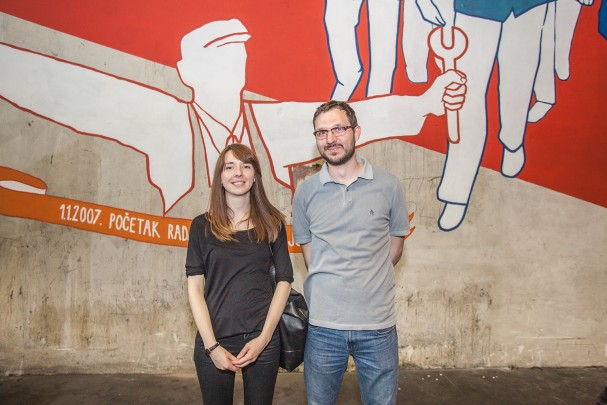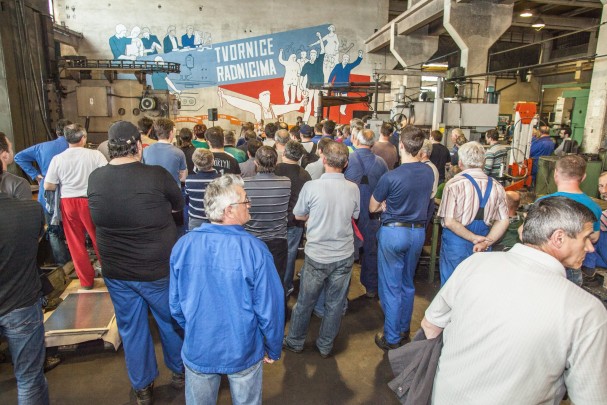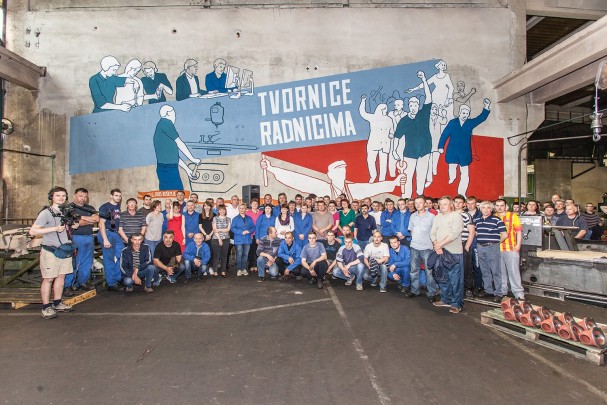Factories to the Workers!
Kurs
With the participation of KURS, the outspokenly temporary interventions into public space at the UrbanFestival seem to have ceded before a rather regressive form – mural painting. The contemporary mural is part of the strategy of beautification and a very successful mechanism of “reviving derelict façades” that brand the city; however, in different political circumstances it used to serve as a way of informing the illiterate masses, of translating a politically and socially engaged message into a visual language that was accessible to all and legible to all. Can we imagine murals, in the current social and political context, that would reinterpret this tradition and at the same time avoid the trap of co-opting the aesthetics of resistance into the processes of commodification of public space? Can the mural painting of today come out of the artistic and aesthetic sphere, becoming part of the wider social struggle? KURS has attempted to answer this question for the UF by intervening into the interior walls of a factory hall with the intention of making it a part of the proletarian struggle rather than its mere decoration. The factory in question is ITAS (Factory of Tools and Machines Ivanec), a remnant of Prvomajska, a former metallurgical giant, that in 2005 encouraged workers’ struggle in order to prevent the dissolution of production and to occupy the plants. The model of workers’ shareholding, which ITAS keeps evolving, helps the workers to defend the factory from the inside, to the present day.
“By painting a mural at ITAS Prvomajska factory in Ivanec, we primarily wanted to support the workers’ organization and struggle, which resists the logic of the market and the interests of gross capital. The aim has been to use our labour in order to join the workers’ struggle and to contribute to its development and empowerment. The intervention contradicts the today’s view of mural painting as a tool of aestheticization and decoration; it does not romanticize the struggle of ITAS’ workers, but becomes its integral part. The decision on positioning the mural within the factory resulted from our wish to address the workers by offering them something that places the workers’ collective and the workers’ self-management into the fore. It is supposed to send a clear message to all the visitors to the factory: “ITAS is its workers.” In order to describe how we see our position as artists, we will paraphrase Walter Benjamin: our task is to fight rather than to decorate; it is to become actively involved rather than to be mere observers. In a broader sense, the mural in ITAS’ factory represents the inevitability of struggle in developing the progressive models of management through workers’ collectives. That struggle does not take place in factories alone: it must spill over to other spheres of the society, to the fields of art and culture, and cannot build up a sustainable materials base without the industrial production and without reflecting on the new models of labour.” (KURS)
KURS (Miloš Miletić and Mirjana Radovanović) is a Belgrade-based collective that seeks to address some of the crucial issues of public interest, such as unemployment, flexibilization, the commercialization of education, the working conditions in
various cultures, and historical revisionism. They endorse the re-politicization of cultural and artistic concepts. Their practice explores various forms of interventions in public space..
